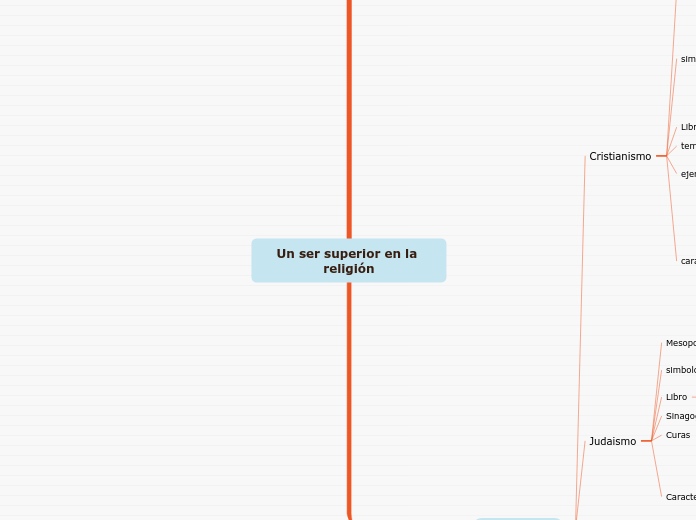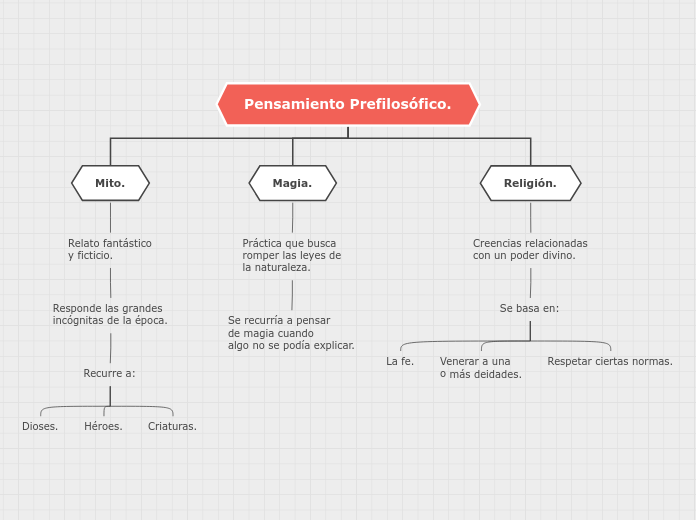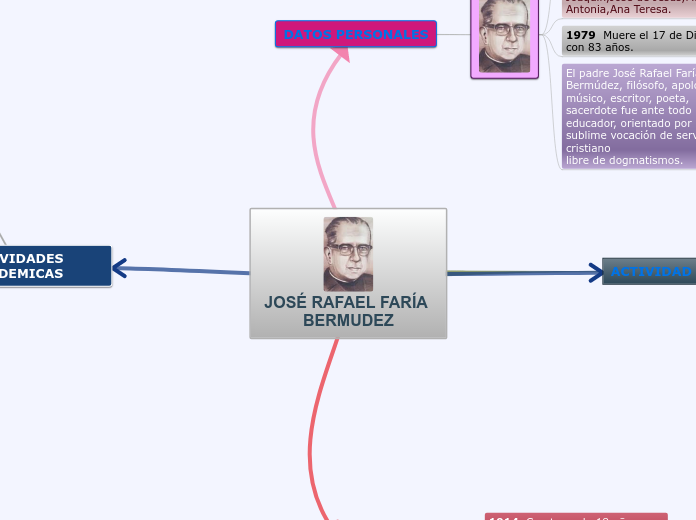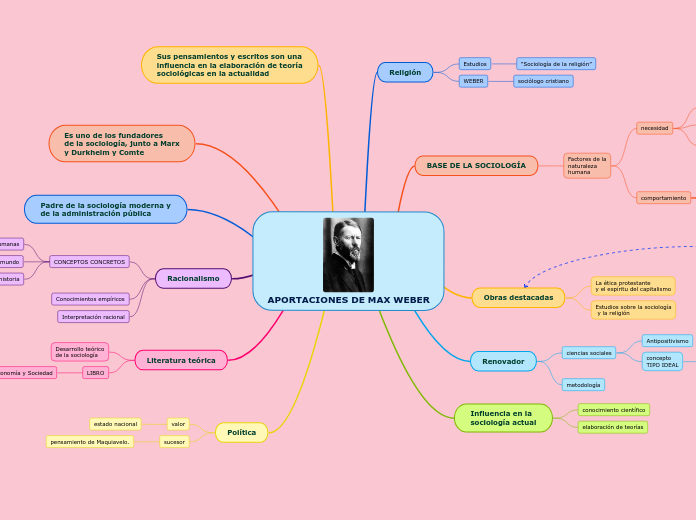Un ser superior en la religión
To name your story, you have to think about the overall message and what you want your audience to understand from the story. Also, make it relevant and easy to remember.
otras religiones
The ending of a story is essential. We all know that if the ending is weak, what happened before loses its importance. So make it unpredictable, but fair. A resolved ending answers all the questions and ties up any loose threads from the plot.
Budismo
meditación necesaria
sin creencias
basada
espiritual
filosofia
no teista
textos budistas
Simbolo
rueda del darma
zona este de Asia
islam
peregrinacion a la meca
aceptacion de la fe
oro diariamente
obrar con caridad
ayuno
libro
corán
simbolo
luna creciente
Arabia saudita
hinduismo
reflejo espiritu
teatro
literatura
arte
muchas religiones
creencia
reencarnación
comprende
3 dioses principales
33 divinidades
ritual diferente
cada situacion
cada acto
templos o casas
Los cuatro Vedas
Simbolos
El Om
India
Judaismo
This is the closure section of the story.
See examples of possible outcomes below:
- all problems have been solved
- it's clear how each one of your characters ends up
- your main character is transformed by the challenge
Características
culto
sinagogas
templos
lengua: hebreo
sabado
varios libros sagrados
religion monoteista
Curas
Sinagoga
Libro
Try answering these questions in order for you to come up with a closure:
- Have all problems been solved?
- Is it clear what happens with all your characters in the story?
- Has the challenged transformed your main character?
- How do the characters feel in the end?
Torá
menorá
estrella de David
Mesopotamia
Try answering these questions to come up with a closure:
- Have all the problems been solved?
- Is there a clear picture of what happens with each character in the story?
- Has the challenge transformed your main character?
- How do the characters feel in the end?
Cristianismo
This is the moment when the main character surpasses the last obstacle and finally faces their greatest challenge.
The climax usually follows one of these patterns:
- realization
- resolution
- choice
Type in your answer.
características
ritual principal
Cena del señor
cree
vida eterna
resurrección
propone
fraternidad
amor
rige nuevo testamento
monoteista
ejerce celebraciones
obispos
papas
templos, iglesias
Libro: Biblia
simbolos
corona de espinas
pan y vino
ancla
cruz invertida
crismón
paloma blanca
cruz
Israel y Palestina
busca
The middle of the story is where you add layers of complications that will lead to the end. Reveal more about the character's journey. Did their personality go through changes? How did they overcome the challenges? And as you build up the story’s central conflict, make it more personal to that character. Also, from the middle act, you have to lead into the final act.
Actitudes
Your character(s) need(s) motivation in order to solve the challenge(s).
simbolíca
crear
manera de adorar
ser invisible
representación
objetos
altares
imágenes
oración
fascinación
impulso
trascender
admirar
representacion divina
perfeccion
temor
Secondary characters also might have motivs beacuse of which they may cross path with main character or which might trigger them to help the main character.
aceptación
debilidad moral
respeto
estupor
Secondary characters might also have motives that lead them to cross paths with the main character or which might trigger them to help the main character.
Admiracion
asombro
limites inimaginables del dios
reconocimiento
Why does your character need to confront this challenge? What does he/she expect to accomplish by solving it?
See a few examples:
- will marry in 3 days
- can fix the mistakes of the past
trascendencia
fe
no dudar de su existencia
actitud religiosa
Each story has a main character and that character usually needs to solve a problem or challenge. The character's challenge is the one that creates tension throughout the story.
confianza
Type in any other challenges which other characters in the story need to face.
relación
ser supremo
entrega
valor central
In most stories, there are 3 challenges. The number 3 is a mystical number symbolizing completeness. Try to come up with interesting challenges with which your character needs to struggle.
See a few examples below:
- turns into a werewolf at night
- is sent back in time
confianza y fe
cambios
vida de los demás
vida personal
ser superior
In the beginning of the story (or the exposition), you will need to introduce the setting and characters. You might also want to introduce the main conflict. This part of the story is important because it gives the reader necessary background information and maybe even a first insight into a character’s personality.
sagrado
The setting (time & place) of a story can change throughout the plot.
representaciones
Sensory details include sight, sound, touch, smell, and taste. These details are important because they create depth in your setting.
See a few examples below:
- the smell of fresh bread
- the scent of freshly cut grass
- rain falling onto the windshield etc.
acciones
personas
espiritu
superior
The weather is an important element in your story because it can highly influence the ambiance and the mood of the characters.
vida como tal
Decide if you want to include an element of nature in your story. For example, a rainbow can be a very nice choice for a happy ending. The mist in a story can represent mystery and secrets. A thunder can appear in the background at the moment when the 'bad guy' of the story makes its appearance, etc.
hombre
Does your story include catastrophic weather? See a few suggestions below or add your own:
- hurricane, earthquake, storm, etc
objetivo
The time of the story can also change. It can describe the event of a single day or can include an entire year's plot. Anyway, don't forget to mention it.
guiar
esperanza
salvación
presencia
Your story can take place wherever your imagination will take you to.
For example: in an elevator, in an enchanted forest, etc. Don't forget to give details of the environment each time the setting changes, otherwise, the story can be confusing. Also, mention the seasons as each of them has unique weather and events.
indemostrable
real
creador y soberano
Characters are essential to a good story. Usually, the protagonist(s) is/are the most affected by the plot. Introduce a character by focusing on their actions, interests, and occupation, as the physical appearance doesn't make a difference in most cases.
existencia
Type in the name of your character.
vida
Which traits best describe the character's personality? Choose more if necessary:
introvertedloyalkindindependentquick-thinkingadventuresomeidealisticsweet-naturedcalmrisk-takercreativewittystrictfussyweirdclumsyharshaggressivecarelessclingingcowardlycrueldeceitfulimpulsiveOther
universo
Choose the type of your chacter:
Protagonist (main character)Antagonist (main character's opponent)Flat (stereotypical character)Round (his/ her personality develops throughout the story)Static (doesn't evolve as a person throughout the story)Dynamic (dramatical change in personality)Confidant (the main character trusts him/ her)Foil (contrasting character who enhances the personality of another character)Other










